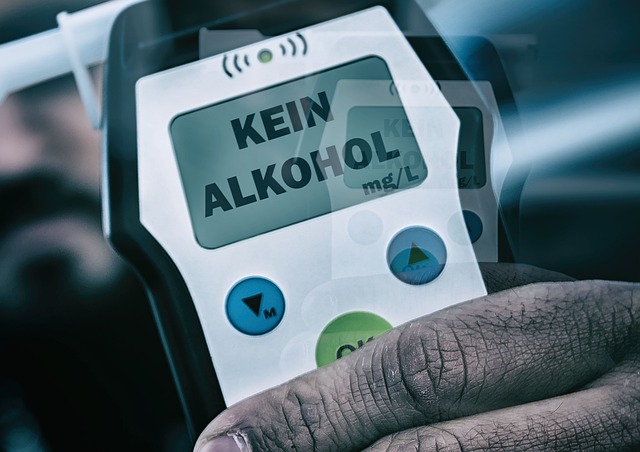Mental health issues and impaired driving pose significant risks on the road. Accurate Breath Alcohol Level (BAL) testing is vital for identification and mitigation. Bal testing provides critical data for law enforcement, healthcare professionals, and public awareness campaigns. Challenges include varying test procedures, equipment, training, and individual factors. Reliable BAL testing enhances road safety, identifies unsafely driving individuals, and promotes informed decisions for licensing. Rigorous protocols reduce risks associated with mental health conditions and impaired driving, fostering safer society and independence.
In today’s world, ensuring safe roads is a multifaceted challenge, with mental health and impaired driving emerging as critical unseen factors. Balanced Alcohol Level (BAL) testing plays a pivotal role in maintaining road safety by providing accurate assessments of driver impairment. However, achieving consistent test results isn’t without challenges. This article explores the significance of BAL testing, delves into the impact of mental health and impaired driving, and highlights the essential role it plays in enhancing overall safety on our highways.
- Mental Health: The Unseen Factor in Driving Safety
- Impaired Driving: Consequences and Impact on Society
- BAL Testing: A Crucial Tool for Accurate Assessment
- Challenges in Achieving Consistent Test Results
- Enhancing Safety: The Role of Reliable BAL Testing
Mental Health: The Unseen Factor in Driving Safety

Mental health plays a critical, yet often overlooked, role in ensuring safe driving. Impaired driving isn’t just about physical abilities; it’s deeply connected to an individual’s psychological state. Conditions like anxiety, depression, or post-traumatic stress disorder (PTSD) can significantly impact reaction times, decision-making, and overall awareness – all essential aspects of operating a vehicle safely.
Ignoring mental health issues in the context of driving safety can lead to serious consequences. Just as blood alcohol levels are measured to determine impairment, mental health status should be evaluated to ensure drivers are fit to be on the road. Recognizing and addressing mental health challenges early can help prevent accidents caused by distracted or impaired driving resulting from untreated psychological conditions.
Impaired Driving: Consequences and Impact on Society

Impaired driving, whether due to alcohol or substance abuse, has severe consequences that extend far beyond legal penalties. It poses a significant risk to public safety and has a profound impact on individuals and society as a whole. The effects of mental health issues often play a critical role in this context, exacerbating the dangers associated with behind-the-wheel impairment.
When an individual drives while impaired, it not only puts their own life at risk but also endangers the lives of others on the road. Accurate BAL (Blood Alcohol Level) testing is instrumental in identifying and addressing this issue. Society bears the brunt of impaired driving through increased traffic accidents, injuries, and fatalities. Moreover, it can lead to long-term mental health challenges for both the driver and victims, emphasizing the need for precise and reliable testing methods to combat this pervasive problem.
BAL Testing: A Crucial Tool for Accurate Assessment

BAL testing, or Breath Alcohol Testing, is a vital tool in the field of mental health and impaired driving. It plays a crucial role in ensuring accurate assessment and addressing issues related to alcohol consumption and its impact on individuals’ well-being and safety. By measuring the breath alcohol concentration, BAL testing helps identify and quantify alcohol impairment, which is essential for law enforcement and healthcare professionals alike.
This method provides real-time data, enabling quick decision-making processes during traffic stops or in clinical settings. Accurate results from BAL tests are pivotal in preventing impaired driving, a significant public health concern. They help establish legal limits, support treatment plans for alcohol-related issues, and promote awareness campaigns, ultimately contributing to safer communities and improved mental health outcomes.
Challenges in Achieving Consistent Test Results

Achieving consistent and accurate results in BAL testing is not without challenges, especially when addressing Mental Health and Impaired Driving concerns. One significant hurdle lies in standardizing test procedures across various settings and operators. Different labs may employ distinct methods for sample collection, analysis, and interpretation, leading to potential variations in outcomes. These inconsistencies can arise from equipment differences, training levels of personnel, and even subtle deviations in test protocols.
Moreover, individual factors such as an individual’s metabolism, bodily composition, and medication usage can influence the accuracy of BAL results. Mental health conditions themselves may impact the body’s physiological response to alcohol, making it crucial to consider a patient’s overall well-being during testing. To overcome these challenges, continuous quality control measures, standardized protocols, and regular training for personnel are essential to ensure reliable and reproducible BAL test outcomes in the context of Mental Health and Impaired Driving assessments.
Enhancing Safety: The Role of Reliable BAL Testing

Reliable Bal testing plays a pivotal role in enhancing safety on our roads, especially for those dealing with mental health issues or impaired driving. In many jurisdictions, Balance Ability (BAL) tests are integrated into driver licensing and impairment assessments to ensure individuals with potential balance disorders or cognitive impairments do not operate vehicles unsafely. Accurate BAL test results help authorities make informed decisions, ensuring that only qualified drivers take the wheel.
By implementing rigorous BAL testing protocols, we can mitigate risks associated with mental health conditions and impaired driving. This proactive approach not only protects public safety but also fosters a more inclusive society where individuals with manageable conditions can navigate their daily lives independently behind the wheel.
In conclusion, addressing mental health as a critical component of driving safety alongside understanding the severe repercussions of impaired driving underscores the indispensable role of accurate BAL testing. Overcoming challenges in test consistency is paramount to enhancing road security. Reliable BAL testing enables us to make informed decisions, ensuring safer communities and better lives for all, regardless of mental or physical impairments.






